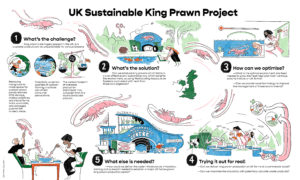
‘Rewilding’ is a polarising idea and a polarising word. For some it is threatening and alienating, for others it presents a hopeful narrative for the future of conservation and ecosystems.
Some people avoid the word, even if their work falls within the broad definition of what rewilding can be. While others embrace it and adopt the brand to their projects even if the link is tenuous.
Rewilding Britain’s website shows that the term is used to identify networks of rewilding, but projects themselves overwhelmingly prefer to identify themselves by their location or through the terms wild or wilder.
Virginia Thomas suggests that this is the result of the domestication of rewilding in England ‘rewilding is being adapted to exist alongside people in England, as compared to other countries where it has lower tolerance for human intervention and a tendency to exclude humans.’
Projects are seemingly avoiding self-identifying as rewilding in an attempt to side-step potential negative perceptions of the idea as alienating, and not inclusive of humans and other land uses.
A modified version of domesticated rewilding is emerging in England, with some common characteristics:
- Projects self-identifying as ‘wilding’ rather than using the term ‘rewilding’ in project titles, although rewilding will often appear in project descriptions and its concepts are applied in practice.
- Rewilding operates at a smaller scale in England than it does in Scotland, continental Europe and the continents of North and South America.
- Rewilding in England aims to increase biodiversity but does so within certain limits, most notably without (re)introducing some mega-fauna species, particularly the large carnivores but also large herbivores and omnivores.
- Reducing human intervention is an ambition of rewilding in England but only up to a point, as it is not practicable nor acceptable to completely withdraw human management of landscapes.
- While the increase of natural agency is an aspiration of rewilding in England this is limited by the requirement for some level of human intervention which, by definition and design, limits natural agency.
Read Virginia Thomas’ blog with further details on her research: https://whitehorsepress.blog/2021/10/04/rewilding-the-conservation-approach-that-dare-not-speak-its-name/
Find more illustrations from Fanny Didou at https://twitter.com/fannydidou


